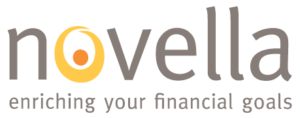5 Types of People Who Should be Contributing to RRSP
Wondering if you should be contributing to RRSP? The Registered Retirement Savings Plan, or RRSP is a tax-sheltered investment account. The RRSP has lots of benefits but who is it really suited for? In this blog post, I will cover 5 types of people who will greatly benefit from contributing to RRSP. Read on to see if you are one of them!
Long-term Savers
The first type of person who should consider contributing to RRSP is anyone who plans to save money long-term. But, how long is long-term? After all, the acronym for RRSP is Registered Retirement Savings Plan, with the intention that it is supposed to contribute towards your retirement.
For example, if you need your money in two months from now to buy a new computer, then it’s better to put your money somewhere else. However, if you can confidently say that you’ll save this money for a longer period of time and you know your future tax bracket is lower than what you are currently at, then RRSP is the perfect option.
The RRSP has a contribution cap of 18% meaning you can save up to 18% of your last year’s income. If you watched my RRSP 101 video, you’ll know that the Canadian government set this 18% because they are under the assumption that if you can save around 15 to 18% of your income with a decent rate of return like 6-8% per year, then you don’t have to worry about your retirement.
If you don’t plan to retire, that’s ok too. RRSP is a tool to help you reduce your tax payment and keep the CRA handoffs. Once you max out your TFSA, then you can consider putting it in the RRSP.
People in a high tax bracket
As you might know, your income tax depends on how much you earn in a year so if you’re in a high tax bracket, that would be a reason to consider contributing to your RRSP. Depending on your earnings you will be in a different tax bracket. If you are in a high tax bracket, putting some money in an RRSP is a wise decision.
But what does “high” mean? It’s a relative word, right?
From my experience, everyone who is making over 40K a year can start considering an RRSP to save on taxes. If your income is over 80K a year then you should definitely look into having an RRSP. Especially for the 9 – 5 employees, unlike being a business owner, there are not a lot of options for the employees to deduct their taxable income. An RRSP is a simple yet effective strategy to get more tax returns.
Also, a lot of companies such as gaming companies or tech companies give out bonuses contributing to that extra 4 or even 5 digits to your paycheque. However, if you don’t plan accordingly, the CRA will come and take 20, 30 or even 40% of that bonus away from you. Consider putting the bonus into an RRSP.
Always consider your cashflow first and speak to your accountant for details.
Families and Elderly People
If you have children or if you are nearing retirement, you are in a unique position to get government benefits, but those benefits are connected to your income so contributing to RRSP can help. If you earn too much money, the benefits are gone so that’s when your RRPS would come in.
Let’s look at a specific example: If you have kids, the Canada child benefit is income-related. If the income of the whole household is more than $200,000 a year then you’ll stop getting the Canada child benefits. Putting money aside into an RRSP will reduce your taxable income and increase your benefits.
The same is true for those who are receiving old age security and guaranteed income supplement. There will be a clawback once you make 79K a year. $79,000 might seem a high number, but imagine if you’ve been saving for the past 20-30 years, and by snowballing your investment while receiving a nice pension, it can be done. In this case, RRSP can help. However, keep in mind that you can only use your RRSP until age 71. After age 71 it becomes a RRIF and you are forced to take the money out and that you need to pay tax on.
If you want to know how to make a financial breakthrough this year, I have prepared a 30-minute masterclass for you. There you will learn how to avoid common money pitfalls and how to save smarter. So be sure to check it out!
First-Home Buyers
If you are looking to buy your first home in the next 3-5 years, then an RRSP is perfect for you. The tax return from RRSP will boost your savings. Imagine you are making $100,000 per year. That puts you in the marginal tax bracket of 38% meaning for the next dollar earned, you have to pay 38 cents of that dollar earned to the government.
If you put $10,000 into your RRSP, in theory, you roughly will get $3800 in a tax return.
Do that for 3 years, you get $11,400 on top of your savings. Yes, that $11,000 might not be a huge number compared to the real estate price but from another perspective, all I’m doing is simply moving money from account A to account B, and now I get a 38% rate of return guaranteed. A dollar saved is a dollar earned right?
You might be thinking, when I take the money out from RRSP, I’ll have to pay 100% tax after 3 years so how will that help me buy a home? Well, usually you do have to pay tax when you take money out of your RRSP, but not if you use the RRSP home buyer plan. The RRSP home buyer plan allows you to take out money without any withholding tax up to $35,000 and use it towards your down payment or other home buying related expense. You then have the next 15 years to repay it back.
2nd Property Sellers
The final group of people who should consider an RRSP are those who want to sell their second property. Besides from your principal home, when you are selling your second property, you’ll be triggering a capital gain. 50% of the growth will be tax.
For example, you might have bought a house for $500,000. Over time it values to $1 million. If you sell it, 50% of the growth which is $250,000 will be considered as income and you will have to pay half of it to the CRA.
This also applies to your investments in the non-registered accounts, especially in 2020 where the tech stocks and cryptocurrency went off the roof. When you sell them, 50% of the gain will be considered taxed.
Using an RRSP can help you reduce the weight of the tax load. As a financial consultant for over 10 years, many clients ask me about the lottery or a life insurance payout. Unlike the United States, Canadian lottery is considered as windfalls and windfalls are not subject to tax. Life insurance is also tax-free which is why many will use life insurance to cover their final tax bills. If this is a topic you’re interested in learning more about, leave any questions below and I’ll answer them in a future post!
Did you fall into any of these 5 types of people who will greatly benefit from using an RRSP? If you are looking for individual advice for your unique situation, book a 30 minute consultation with me and I’d be happy to review your finances! Or, subscribe to my YouTube channel where I teach Canadians on how to build their financial wealth.

